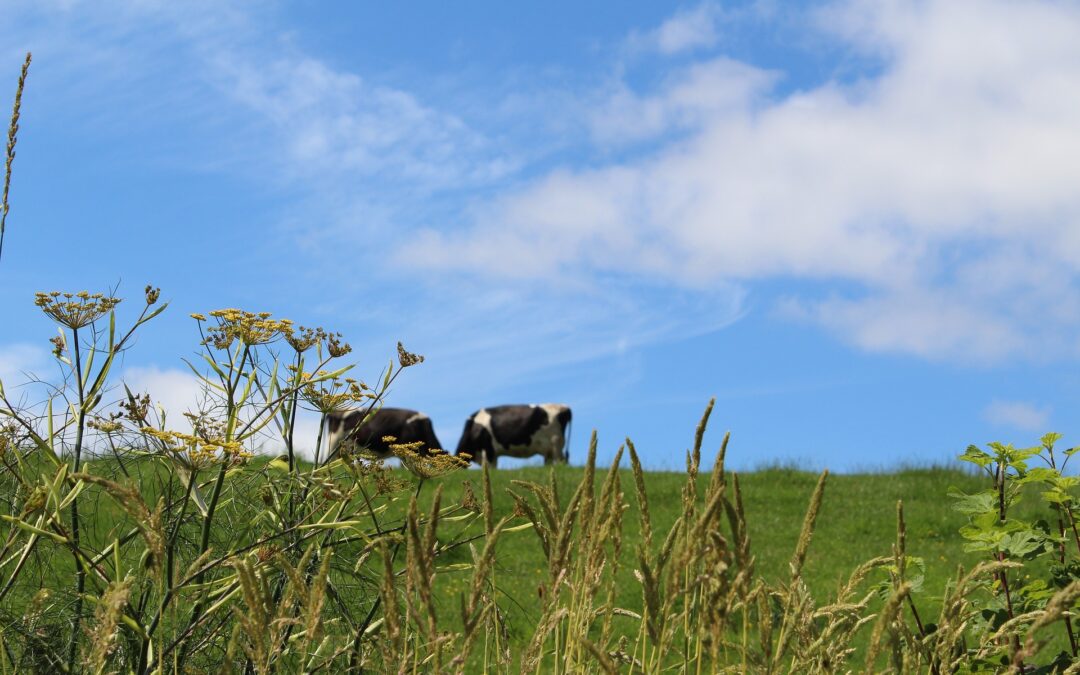When you think of a dairy farm, you may picture rolling fields, cows, and milk. But water plays a large part in getting milk from a cow to your fridge.
From drinking water for cattle to cleaning the dairy and cooling the milk, this natural resource is much needed.
Some figures
According to Dairy UK, 12,000 active dairy farmers produce almost 15 billion litres of milk yearly; seven billion litres are delivered to doorsteps, supermarkets, and restaurants or cafes annually; and three billion litres become more than 700 named British cheeses.
In 2018, a Farming UK article cited Dr David Campbell, associate professor of water conservation at Heriot-Watt University, as stating around 40.9 billion litres of water each year is used in the UK to produce 14 billion litres of milk.
It’s vital water sustainability plays a part and it is positive to see examples such as the UK Dairy Roadmap helping dairy farmers progress in water conservation since 2018, with a 23% relative reduction in water use as of 2020.
Local research
But with first-hand experience of drought and water use restrictions in the region in the last year, we are now working on a research project with farmers, including dairy, in Cornwall and Devon to discover how ‘smart ponds’ could bolster drought-affected water supplies and ease associated river health pressure.
Our CEO Dr. Laurence Couldrick said: “The Water Net Gain project, which has been awarded £1 million in funding from the third Ofwat Innovation Fund Water Breakthrough Challenge, has created a joint research opportunity between us, South West Water, the Environment Agency, Duchy College, and our Tamar Water Stewardship Business Board member, Saputo.
“As more water resource deficits are predicted by 2050, by engaging farmers, initially in the Tamar and Fowey areas, we will explore the potential for new ponds and lakes to create water storage ‘batteries’ at catchment-scale to improve water resilience.”
These ecologically connected and distributive batteries or ‘smart ponds’ would enhance water retention on land, charging during the winter and providing farmers with on-farm resources during summer droughts. They will help alleviate demand on the mains supply or allow farmers to sell to recharge our rivers via water companies adding to the water supply grid.
TWSBB member and WNG participant, Saputo UK
Saputo Dairy UK (SDUK) plays an active role in using water wisely. Over the past six years, it has reduced the overall water intensity of its operations by 29% and around two thirds of the water needed for its manufacturing sites now comes from recycled sources.
At its Davidstow Creamery in Cornwall, water from the incoming milk is recovered from whey powder drying, and process water goes through advanced treatment to enable it to be reused. In combination, this reduces the requirement for freshwater to be imported from the environment by more than one million litres per day.
Steve Harris, Agriculture Procurement Manager at SDUK, explains why the company is involved in Water Net Gain. “Water is a precious resource, and we are committed to using it in a sustainable way, implementing solutions within our manufacturing sites by reducing water consumption as well as through reusing and recycling.
“Our involvement with the Water Net Gain Project allows us to extend this ethos to our supplying farmers across the South West by supporting them in managing and conserving natural water resources on farm, benefitting drought resilience as well as enhancing biodiversity and habitat creation.”
By considering elements such as governance, farmer uptake, technological requirements, and future investment, this research project aims to showcase the long-term benefits of rolling out this water-resilient activity to farmers, wider society, and our rivers.


Well done to Davidstow Creamery, which I believe is the ‘largest producer of Cheddar Cheese’, for it’s water saving program. Cornwall has other large Companies that recycle and re-use water too, which Cornwall should be proud of and recognised for.
We have some much great industry which comes from Farming in Cornwall and so many peoples employment is linked to Farming, which is a very fragile industry at this moment in time, due to weather pressures and the push for Re-Wilding, which if pushed too far may cause more damage to our precious countryside than what it will achieve and then many peoples jobs not only in Farming but linked to Farming could be gone.
Remember:- Davidstow Creamery is trying to save water and help our environment, BUT can’t produce Cheddar Cheese without our Cornish Farmers. Please help the farmers who wish to improve their systems, to help
with the grants needed and to push on forward with timetables as the weather we are experiencing is very demoralising in all types of Farming.
Cornwall can lead the way, only if the people with authority totally understand the fragile Industry links, from South Coast Cornwall, around to the North Coast of Cornwall, to the Moor Lands, the Meat, Vegetables, Fruits, Dairy Products which the Farmland produces needs to be respected for the Economy and in most cases Family run Businesses, where pushing to cover the land in trees and re-wilding will be detrimental to the raw products needed for the ‘Economy wheel’ of Cornwall.